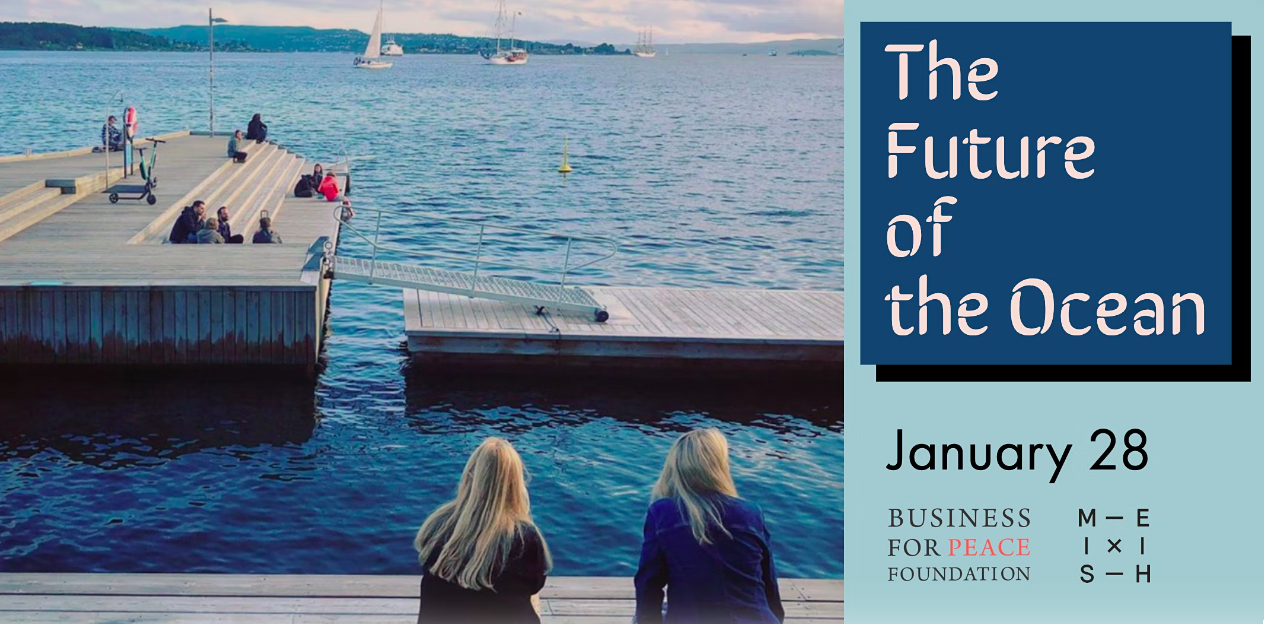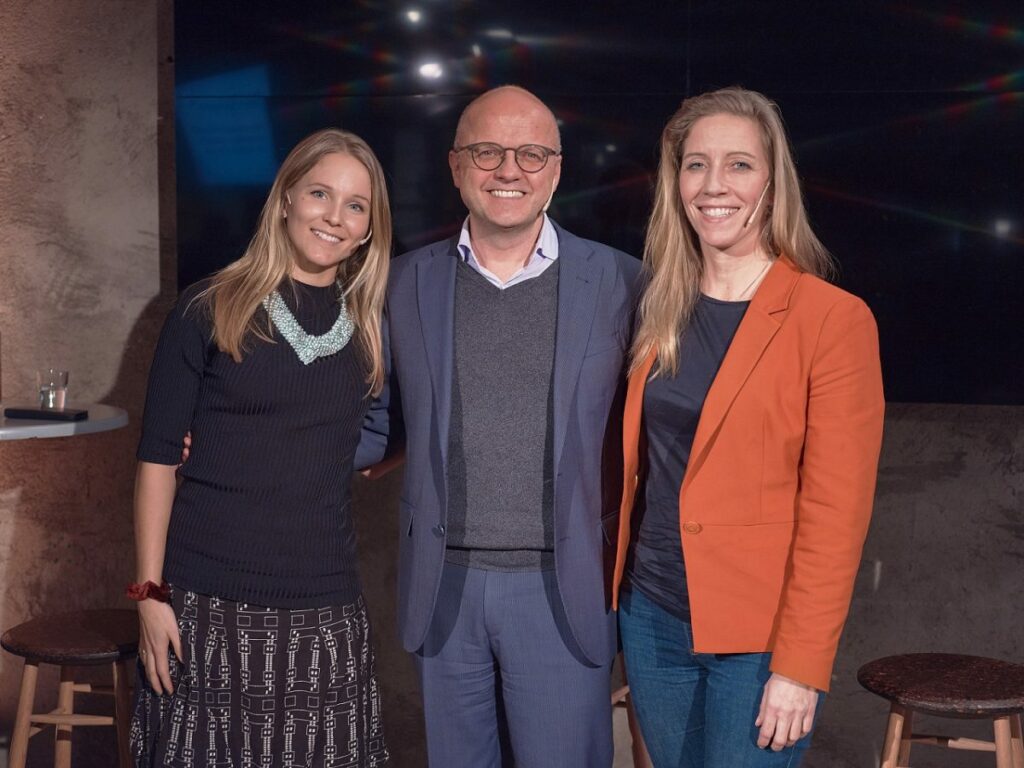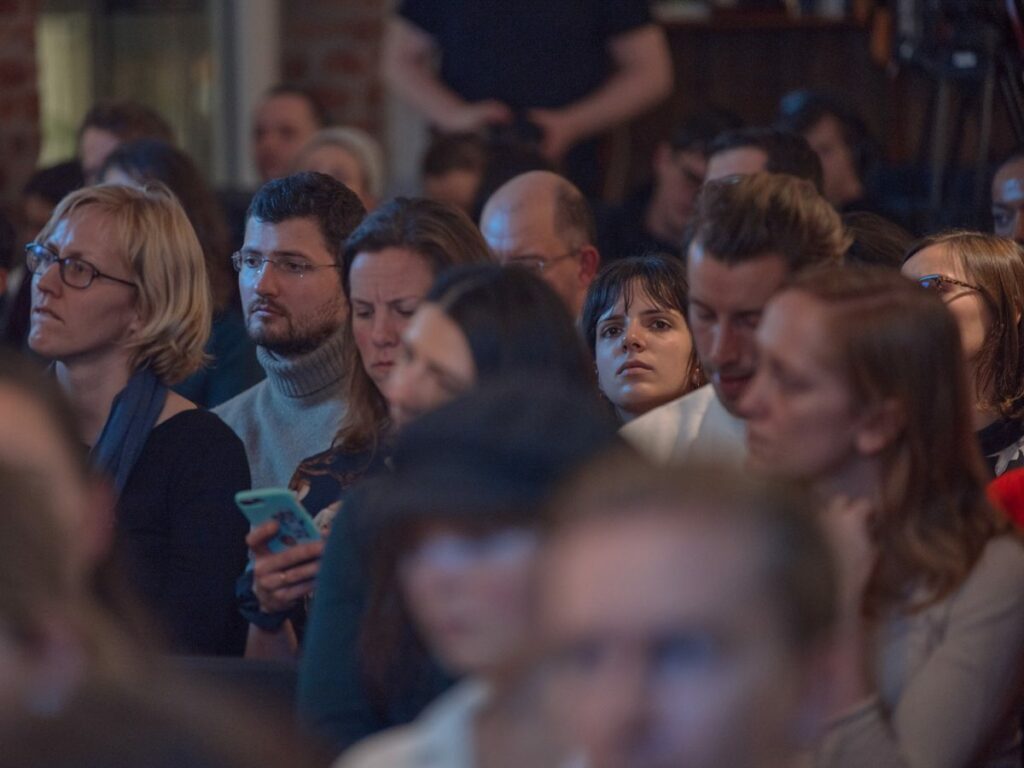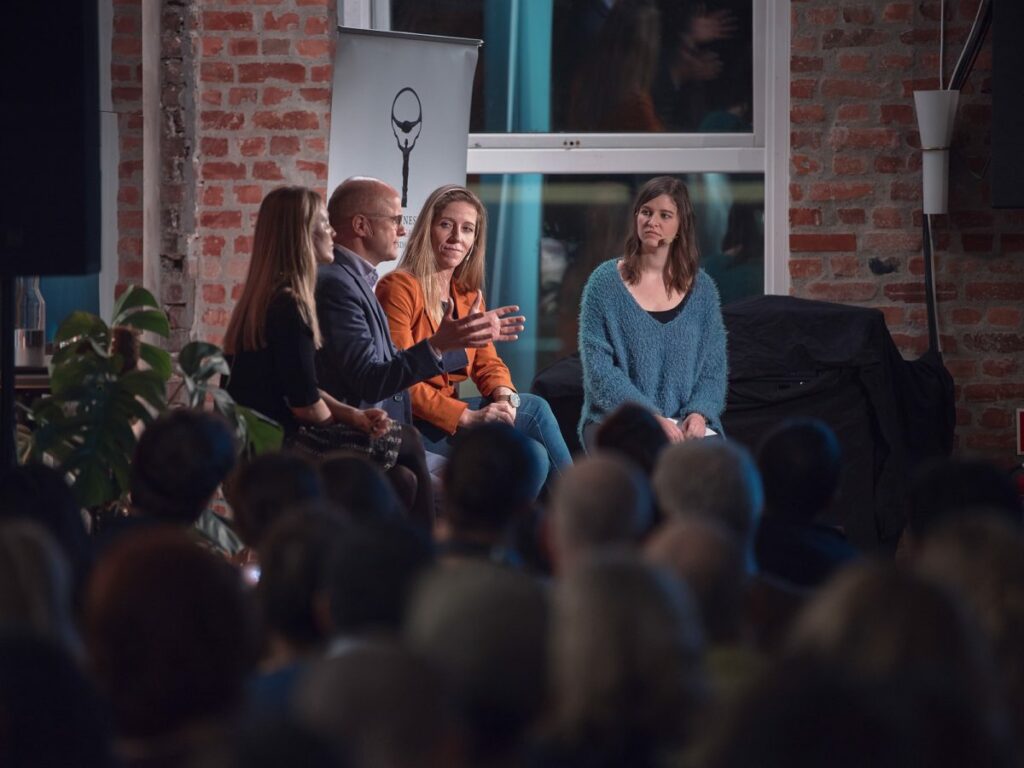Award Committee meets to select 2020 winners
Friday, 14 February 2020 11:11
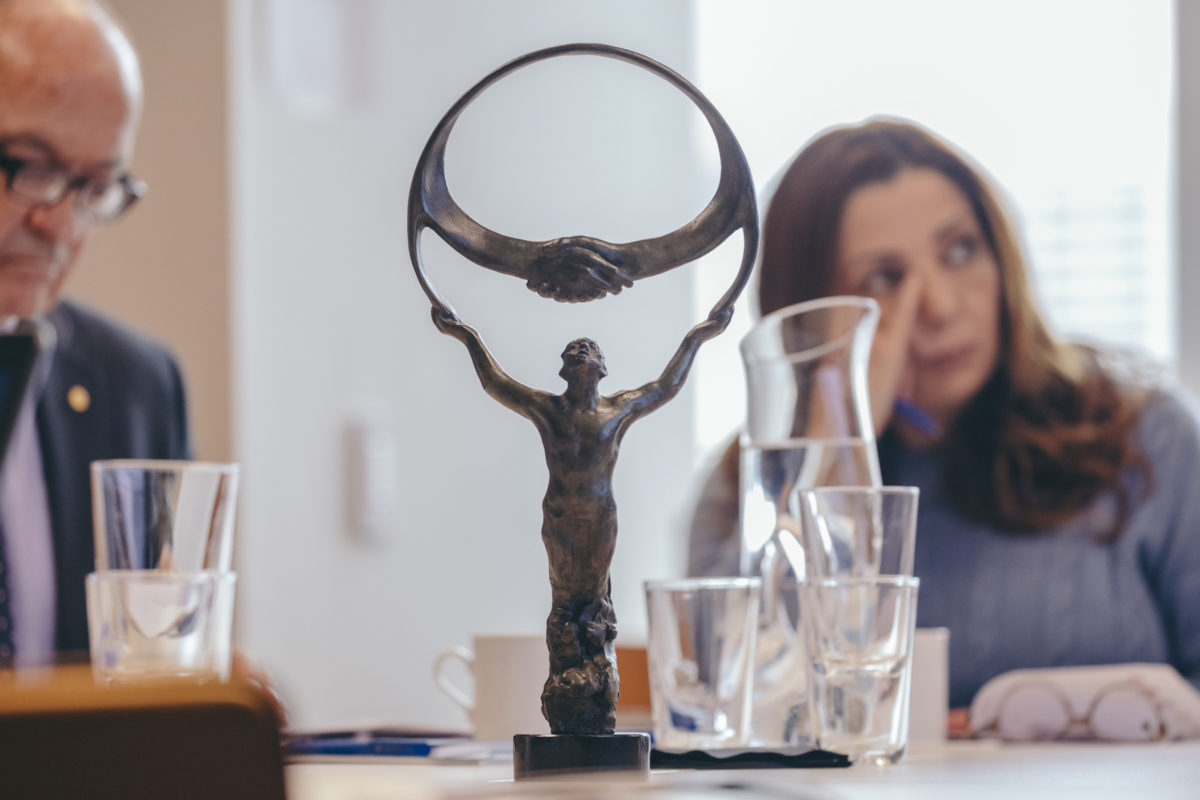
It was a businessworthy day in New York City on Monday. The 2020 gathering of our esteemed Award Committee members was a successful one.
After a hard day of discussion and reviewing many inspiring candidates, the Nobel Laureates in peace and economics have chosen this year’s winners of the Oslo Business for Peace Award.
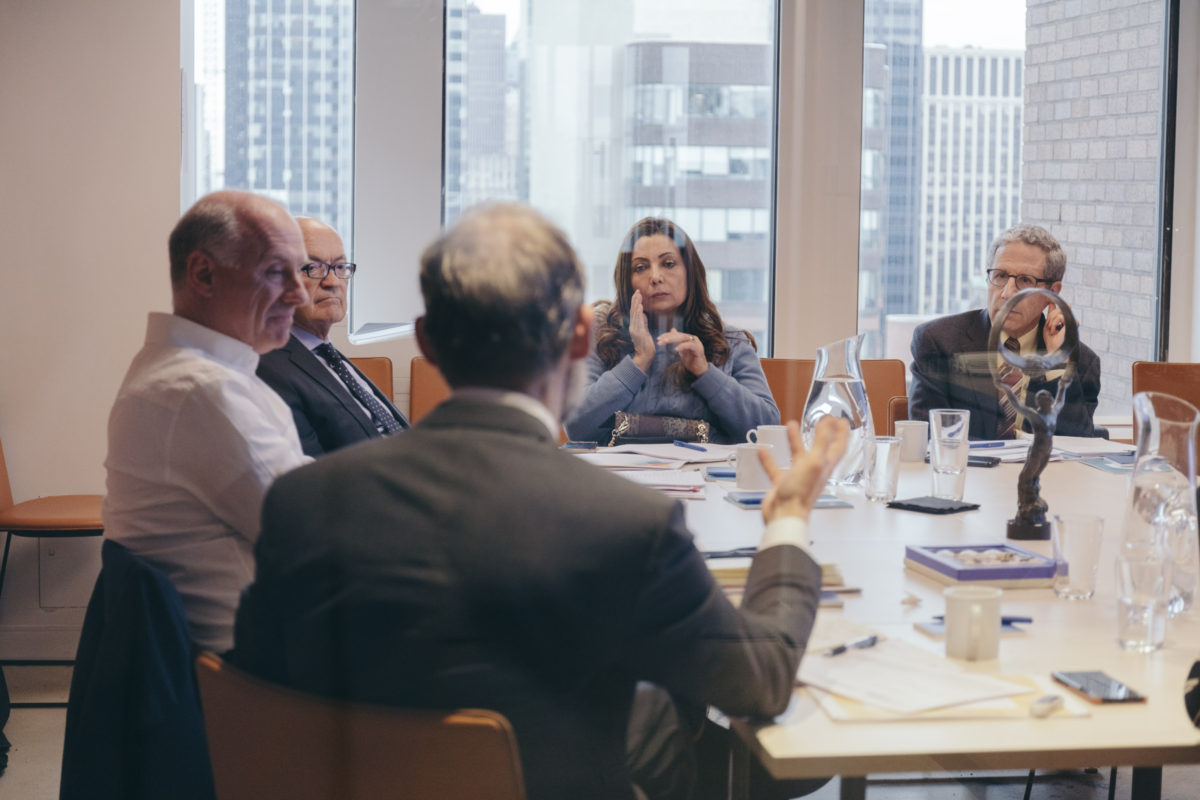
The Oslo Business for Peace Award Committee works independently of the Foundation when assessing nominated candidates. Each year, candidates are nominated through our global partners: International Chamber of Commerce, Principles for Responsible Investment, United Nations Global Compact, and United Nations Development Programme. The decision of the Committee members is final.
Our Award Committee consists of Nobel prize winners in Economics and Peace, including one who has also received our Award.
Finn Kydland, member since 2014, is the winner of the Sveriges Riksbanks Prize in Economic Sciences in Memory of Alfred Nobel 2004. He is also the Henley Professor of Economics at the University of California, Santa Barbara.
Ouided Bouchamaoui, member since 2016, is the President of The Tunisian Confederation of Industry, Trade and Handicrafts (UTICA), and Business for Peace Honouree in 2014. UTICA is one of the four organisations that make up the Tunisian National Dialogue Quartet, which was awarded the Nobel Peace Prize in 2015.
Eric S. Maskin, member since 2017, is the Adams University Professor at Harvard. In 2007, he was awarded the Nobel Memorial Prize in Economics (with L. Hurwicz and R. Myerson) for laying the foundations of mechanism design theory.
Leymah Gbowee, member since 2014, is a Peace Activist and Winner of the 2011 Nobel Peace Prize.
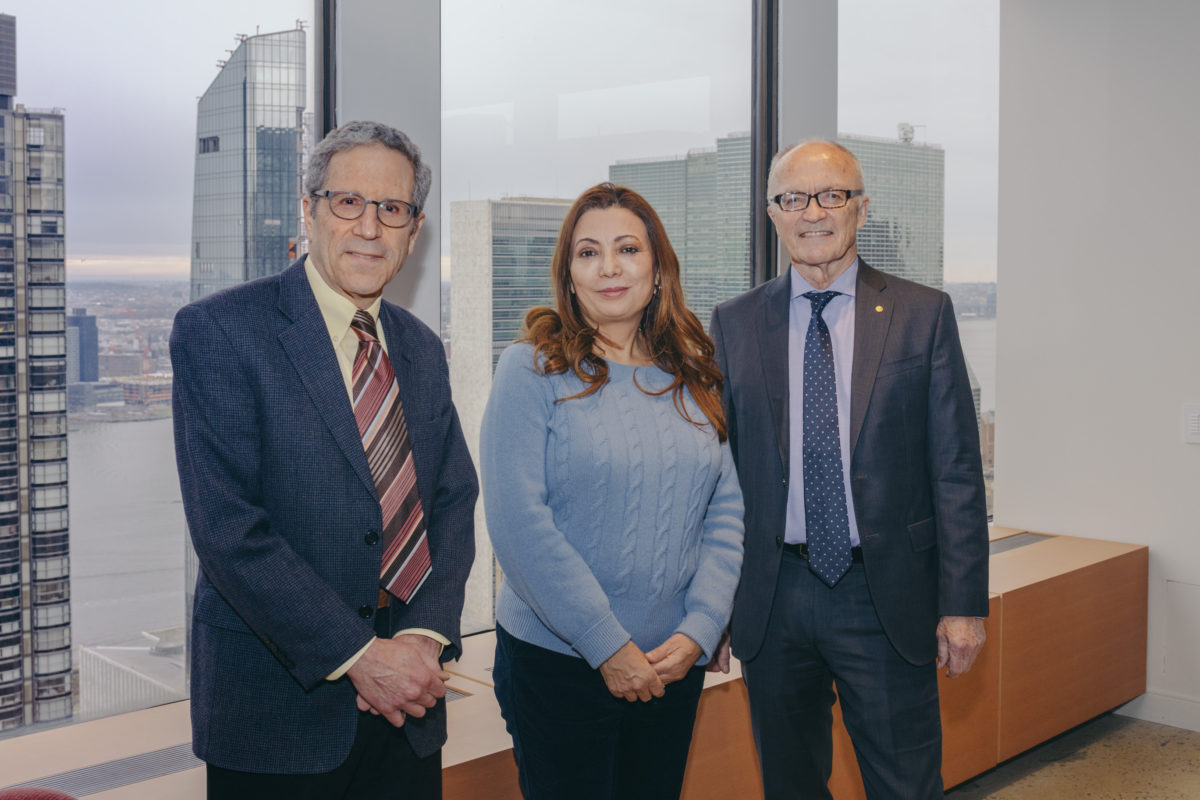
The Committee bases their decision based on the Award criteria: being a role model to society and their peers, standing out as an advocate, and having earned the trust of stakeholders.
An announcement revealing who the 2020 Honourees are will take place in March.
What does it mean to be businessworthy?
We asked our Award Committee members what it means to them to employ businessworthy behaviour in business leadership.
“The ability to a run successful business…but at the same time contributes to society in a bigger way.” -Eric Maskin
“It’s showing that the business community is involved in social and environmental matters, and also that we are concerned about the change happened.” -Ouided Bouchamaoui
“Doing business but with more emphasis on what the activities do for society.” -Finn Kydland
See the full video here:




